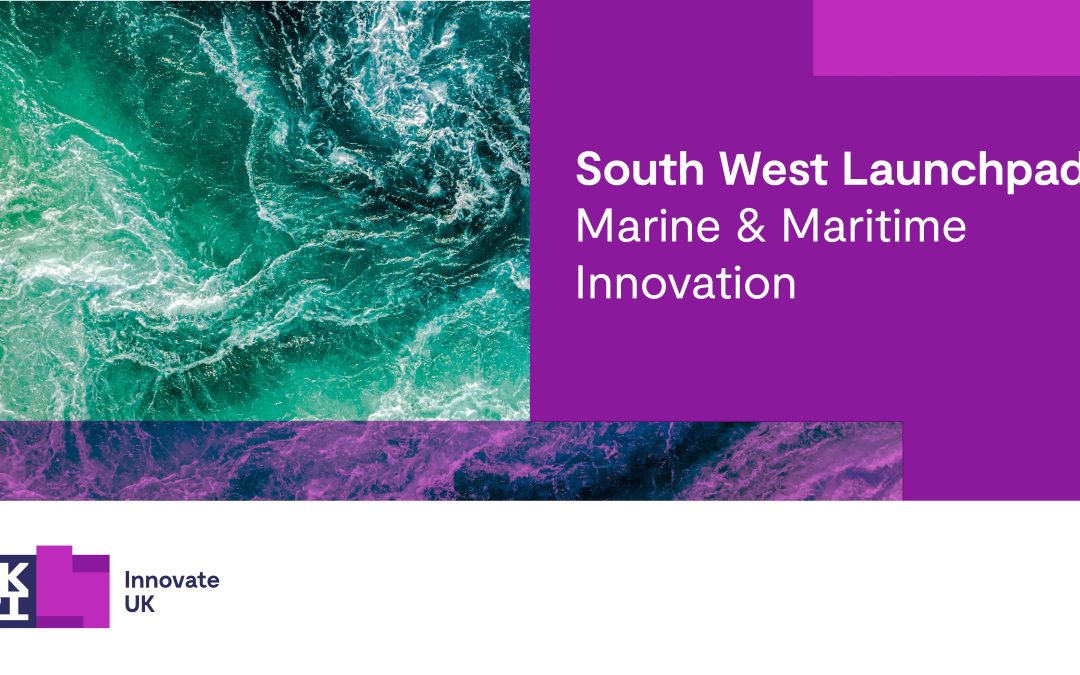Government today announced that the South West region has been chosen as the country’s Marine and Maritime Launchpad.
The Marine and Maritime in the Great South West Launchpad has been developed jointly by Ocean Futures, an international thematic cluster that represents the marine hotbed of innovation for the Plymouth and South Devon Freeport, working in partnership with the Heart of the South West LEP, Maritime UK SW, Innovate UK, and its various industry and research partners. The Launchpad is tailored to provide grants to businesses that develop products that strengthen regional core capabilities and satisfy global market opportunities.
The South West region has been selected to receive up to £7.5m of new investment to drive local innovation and business growth, building on the region’s existing strengths in marine and maritime.
Under the Launchpads programme, small and medium enterprises (SMEs) working in or setting up new business in the region can apply for competitive grants and other support, for innovation projects that focus on marine and maritime.
Grant funding available starts from £25,000, with up to £1 million for collaborative projects that provide exceptional impact to the cluster of SMEs.
The Launchpads programme is funded by Innovate UK, part of UK Research and Innovation. It is designed to build on innovation clusters around the UK that have significant growth potential and to deliver jobs, growth, and higher productivity, supporting the Government’s levelling-up agenda.
The Marine and Maritime in the Great South West Launchpad will accelerate growth opportunities of innovative SMEs with high growth potential in Cornwall and Isles of Scilly, Devon, Dorset and Somerset by offering access to innovation funding, access to world leading facilities, and expertise and regional leadership through the Ocean Futures, Maritime UK SW and Heart of the SW LEP strategic partnership.
The Launchpad will focus on projects that contribute to the UK net zero targets and the Ocean Futures strategic investment themes and sub-sector specialisms of:
- Marine Autonomy
- Clean Maritime
- Digital Ocean technologies
Richard May, CEO of Plymouth and South Devon Freeport says:
“Today’s announcement is testament to the close working partnership that exists within the South West’s marine sector, thanks to Maritime UK SW and others. Ocean Futures was developed three years ago to bring together international organisations from industry and research and provide them with the strategic investment framework to invest in and participate with our global centre of excellence for developing, testing and trialling marine autonomy, digital oceans and clean propulsion solutions. Ocean Futures focuses on these core capabilities and affiliated skills, allowing the Plymouth and South Devon Freeport to attract strong clusters of marine innovators and manufacturers to our global trade and investment hub which benefits from significant UK Freeport incentives and strengthens the sector’s supply chain.”
Councillor Tudor Evans OBE, Leader of Plymouth City Council:
“This is excellent news. Millions of pounds of funding for the marine and maritime sector for the South West and developed by Ocean Futures, initiated and driven from here in Plymouth, the home of marine autonomy in the UK. We’re riding the crest of a wave in Plymouth, and the wider region, by being recognised for our strengths in marine innovation, our blue/green jobs and skills opportunities, growth and capabilities – all closely aligned with the Plymouth and South Devon Freeport.”
Kevin Forshaw, Chair of Maritime UK South West, Chair of the Freeport’s Innovation Advisory Board and Director of Industrial and Strategic Partnerships at University of Plymouth:
“This funding is a fantastic opportunity to boost levels of innovation, exploiting what is already a world-class ocean economy cluster to create commercial solutions to the challenges facing our sector. I am proud to Chair the Maritime UK South West cluster, and help support government, industry and academia to collaborate and develop the South West regional economy, creating a cleaner, high growth, digitally enabled sector”.
Innovate UK CEO Indro Mukerjee:
“Innovate UK has been building strong regional partnerships across the UK to support local innovation and commercialisation. Today’s launch of the Marine and Maritime in the Great South West Launchpad is an important step and another example of active collaboration with regional partners to deliver growth and productivity through innovation.”
To find out more about the Marine and Maritime in the Great South West Launchpad competition, visit https://iuk.ktn-uk.org/programme/launchpads/

